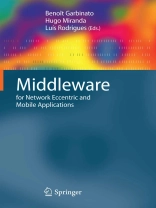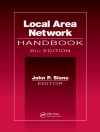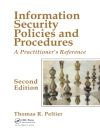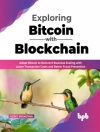Middleware is a critical foundation needed to leverage the development of a wide range of mobile and ubiquitous applications. Intrinsic challenges when building such middleware require the combination of expertise from areas like distributed systems, networking, software engineering, and application development.
This textbook provides a comprehensive introduction to the main fundamental problems, technologies, paradigms, and solutions of concern to developers of middleware for mobile environments. The contributions are grouped into four parts, on networking and programming issues, communication models, middleware issues, and application issues. Each chapter is structured as a self-contained tutorial, presenting an overview of a specific topic and the state-of-the-art solutions for the related problems. In addition, the book also includes an authoritative reference list. The material has been successfully used in several thematic training schools organized by the ESF Mi NEMA (Middleware for Network Eccentric and Mobile Applications) program, and the book’s organization and presentation is ideal for an advanced course on middleware.
Inhoudsopgave
Networking and Programming Issues.- Energy in Wireless Sensor Networks.- Programming Wireless Sensor Networks.- Mobility Models for Systems Evaluation.- Ad Hoc Routing.- Communication Models.- An Introduction to Population Protocols.- Routing Issues in Opportunistic Networks.- Wireless Mesh Networks.- Middleware Issues.- Gossip-Based Dissemination.- Application Layer Multicast.- Distributed Event Routing in Publish/Subscribe Systems.- Tuple Space Middleware for Wireless Networks.- Security Middleware for Mobile Applications.- Dynamic Adaptation.- Applicative Issues.- Middleware Support for Context-Aware Applications.- Autoconfiguration and Service Discovery.- Dynamic Resource Management and Cyber Foraging.- Vehicular Networks and Applications.
Over de auteur
Benoît Garbinato is a Full Professor in computer science at the University of Lausanne, where he leads the Distributed Object Programming Lab. Prior to that he had worked in industry, first for the research lab of UBS in Zurich (Ubilab), where he lead the software engineering group, and later for Sun Microsystems’ professional services, as senior software architect. His current research and teaching activities focus on the design and implementation of dynamic distributed architectures, such as pervasive and mobile systems.
Hugo Miranda is an Assistant Professor at the Informatics Department of the University of Lisbon. His research interests include protocol composition frameworks and mobile computing.
Luís Rodrigues is a Professor of the Departamento de Engenharia Informática at the Technical University of Lisbon. His current interests include fault-tolerant and real-time distributed systems, group membership and communication, replicated data management, publish-subscribe systems, peer-to-peer computing and mobile computing. He is a member of the Ordem dos Engenheiros, ACM, and IEEE.












